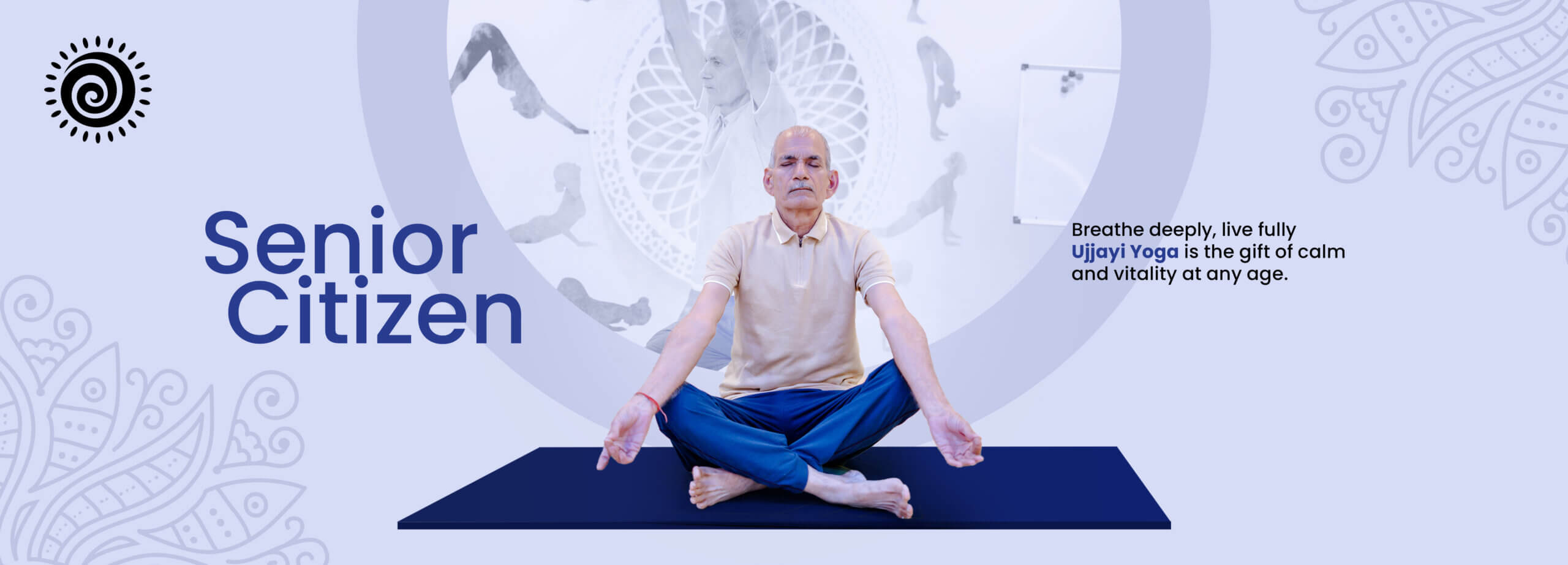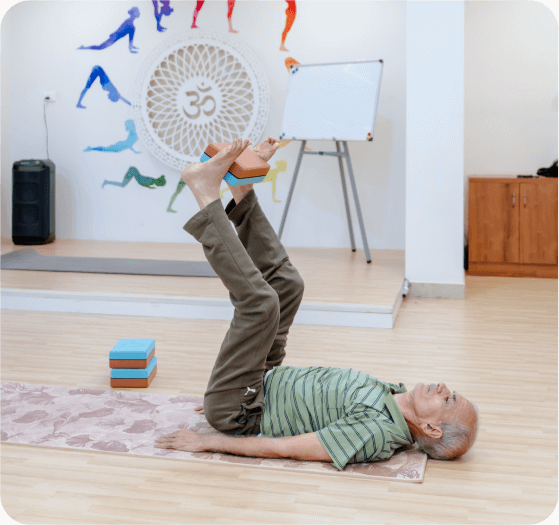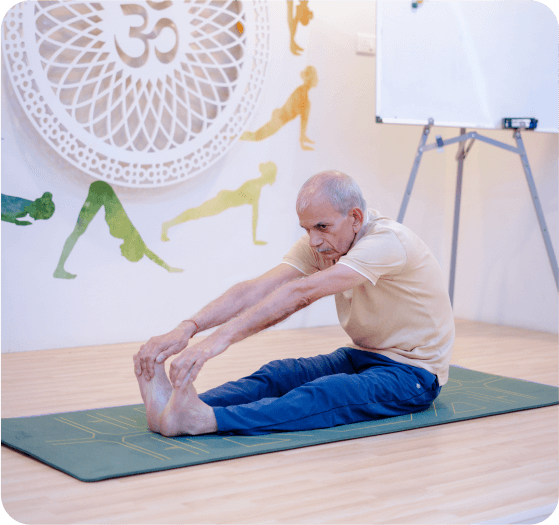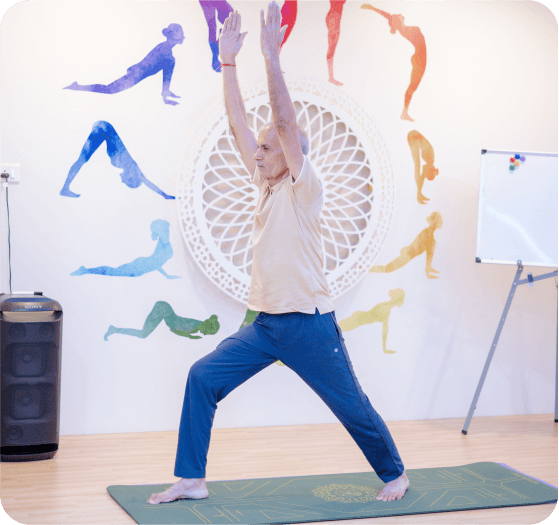
This gentle yoga course is thoughtfully designed for seniors looking to enhance their physical and mental well-being. Whether you’re new to yoga or seeking to deepen your practice, it offers a safe and supportive environment to explore gentle movements, breathing techniques, and meditation.


This program is ideal for seniors who want to improve flexibility, balance, and vitality while fostering a sense of inner peace. No prior experience is required—just a willingness to learn and enjoy the journey.





Senior Citizen Yoga is a modified yoga practice designed specifically for older adults. It focuses on gentle stretches, strength-building, balance, and relaxation. The classes are tailored to accommodate common age-related challenges, such as decreased flexibility, joint stiffness, and balance issues, while promoting overall well-being.
Senior Citizen Yoga is a modified yoga practice designed specifically for older adults. It focuses on gentle stretches, strength-building, balance, and relaxation. The classes are tailored to accommodate common age-related challenges, such as decreased flexibility, joint stiffness, and balance issues, while promoting overall well-being.
Yoga offers many physical and mental benefits for seniors, including:
No, flexibility is not required to start yoga. Yoga can help improve flexibility over time, but it is important to start with gentle movements and listen to your body. Senior Citizen Yoga classes are designed to accommodate various levels of flexibility, and poses are often modified to suit individual needs.
Wear comfortable, loose-fitting clothes that allow for easy movement. Stretchy fabrics are ideal, as they provide freedom during poses. Flat, supportive shoes may be worn for standing poses, but many classes are done barefoot or with non-slip socks to enhance stability and foot awareness. A yoga mat or cushion may also be used for added comfort.
Yes, yoga can be very beneficial for managing arthritis and joint pain. Gentle, controlled movements can help improve joint mobility, reduce stiffness, and strengthen the muscles surrounding the joints. Many poses can be modified to minimize strain on painful joints, and breathing exercises can help manage discomfort. Always speak to your healthcare provider about your specific condition before starting a yoga practice.
For seniors, starting with 1-2 sessions per week is a good way to ease into a yoga routine. As your body adjusts and you feel more comfortable, you can gradually increase the frequency to 3-4 times a week. The key is consistency and listening to your body—don’t push yourself too hard, and take breaks when necessary.
Senior Citizen Yoga classes often include gentle poses that focus on stretching, strengthening, and improving balance. Common poses include:
No, you don’t need any prior experience with yoga to start. Senior Citizen Yoga classes are designed for beginners and those with limited mobility. The instructor will guide you through each pose, offering modifications to suit your level of ability. Yoga is a personal practice, and everyone progresses at their own pace.
Many senior yoga classes are designed to be chair-based, so you can practice while seated, or they offer modifications to avoid getting on the floor. Poses can be performed while sitting or standing, with the use of a chair for support, to ensure that the practice is accessible to everyone. There are also plenty of props (like blocks and straps) that can help you maintain stability and comfort.
: Yes, yoga can help improve cognitive function and memory. The combination of physical movement, deep breathing, and mindfulness practiced in yoga has been shown to reduce stress, increase blood flow to the brain, and improve mental clarity. Additionally, yoga promotes relaxation and reduces anxiety, which can help improve focus and memory retention.
If you feel dizzy or lightheaded during class, it’s important to stop immediately, sit down, and take deep, slow breaths. Dehydration, overexertion, or low blood pressure can sometimes cause dizziness. Make sure to stay hydrated and practice at your own pace. Always inform your instructor if you feel unwell so they can offer guidance or adjustments.
Yoga can be beneficial for people with osteoporosis by strengthening bones and muscles, improving balance, and increasing flexibility. Weight-bearing poses, such as standing or balancing poses, can stimulate bone growth and help prevent bone loss. However, it’s important to avoid deep forward bends or twisting poses that could increase the risk of fractures—your instructor will provide modifications for your safety.
: Yes, there are many styles of yoga that are particularly well-suited for older adults, such as:
: Yes, yoga can help improve sleep quality by promoting relaxation and reducing stress. Gentle yoga practices, especially in the evening, help calm the nervous system and prepare the body for rest. Breathing exercises and meditation techniques learned in yoga can help quiet the mind and alleviate insomnia or restless sleep.
Our mission is to empower individuals of all ages and fitness levels to embark on a journey of self-discovery, inner peace, and physical strength.
Copyright © 2024 Ujjayi Yoga Fitness | All Rights Reserved | Made By Think Venky Studio
WhatsApp us